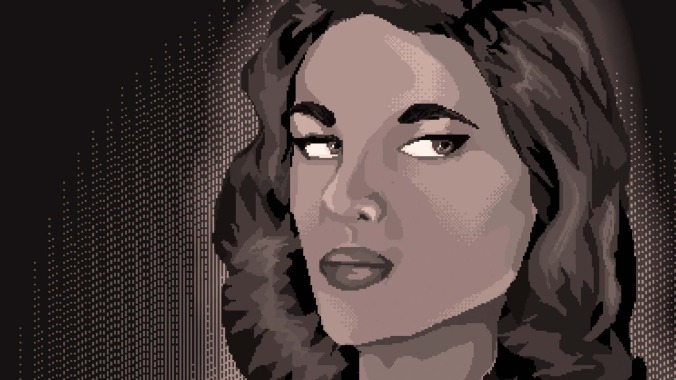Caught Under DJ Sabrina The Teenage DJ’s Spell
We DM'd the anonymous, London-based DJ on Instagram and asked her if she'd do an interview with us. She obliged, and we caught up over email—chatting about editing, anonymity, being an "internet artist," making her new album Hex and more.
Photo courtesy of the artist
DJ Sabrina The Teenage DJ is one of the most interesting figures in music. She remains anonymous yet ever present, funneling her dense dance-pop into the World Wide Web’s strangest and sweetest ethers without so much as revealing one iota about her real life. For that accomplishment alone, she’s a one-in-a-million force who’s found pockets of online fame while holding on to her privacy. Since dropping Makin’ Magick in 2017, Sabrina has amassed a catalog of nearly 20 records—some that total out at over two hours in length—and more singles than you or I could fathom, all of them uploaded “from an old colonial Dutch house somewhere in 1996” by her cat named Salem. The work is the product of an artist who is not just tireless, but ambitious.
In 2022, there was talk about Sabrina’s actual identity being that of Richard D. James (aka Aphex Twin), but those rumors were quickly dispelled. She’s just a woman in London doing some of the best plundering alive, turning film samples and plastic melodies into electronic collages that are as inescapable as they are intoxicating. Over the last near-decade, Sabrina has made headway with her collaborations, writing and producing with the 1975 and remixing other musicians’ tracks (Hotline TNT, Flight Facilities), and just over a year ago she released the four-hour masterpiece Destiny, only to follow it up this August with the equally great Hex.
Hex is a mirage of magic you can’t help but love immediately. The sample-based grooves are relentlessly catchy and colorful, tapping into the obsessive electronic instrumentation that made Destiny such a contemporary pillar of dance, lo-fi house and synth-pop not just for its inventiveness, but for its accessible brilliance. I can’t think of many pop-makers who have a better command of how to produce music that is, all at once, as captivating as it is down-to-earth. If Sabrina is going to continue unloading this kind of glow at an insurmountable clip, we’re in for one hell of a lifetime.
Like many, I became engrossed in the maelstrom of DJ Sabrina The Teenage DJ’s world when Destiny arrived. The way her career is intertwined with Sabrina the Teenage Witch, a show I loved dearly in my earliest cable TV years, and that she may or may not have a cat named Salem who is also her familiar, deepens the lore for a very specific niche of people. (The DJ has even gone on record before that her name is Sabrina Spellman and that she is “younger than 20” but “older than 12.”)
With Hex being so good, I felt like it was time to peek behind the curtain, so I DM’d Sabrina on Instagram and asked her if she’d be down to do an interview together. She obliged, and we caught up over email—chatting about editing, anonymity, being an “internet artist,” making Hex and more.
-

-

-

-

-

-

-

-

-

-

-

-

-

-

-

-

-

-

-

-

-

-

-

-

-

-

-

-

-

-

-

-

-

-

-

-

-

-

-

-








































